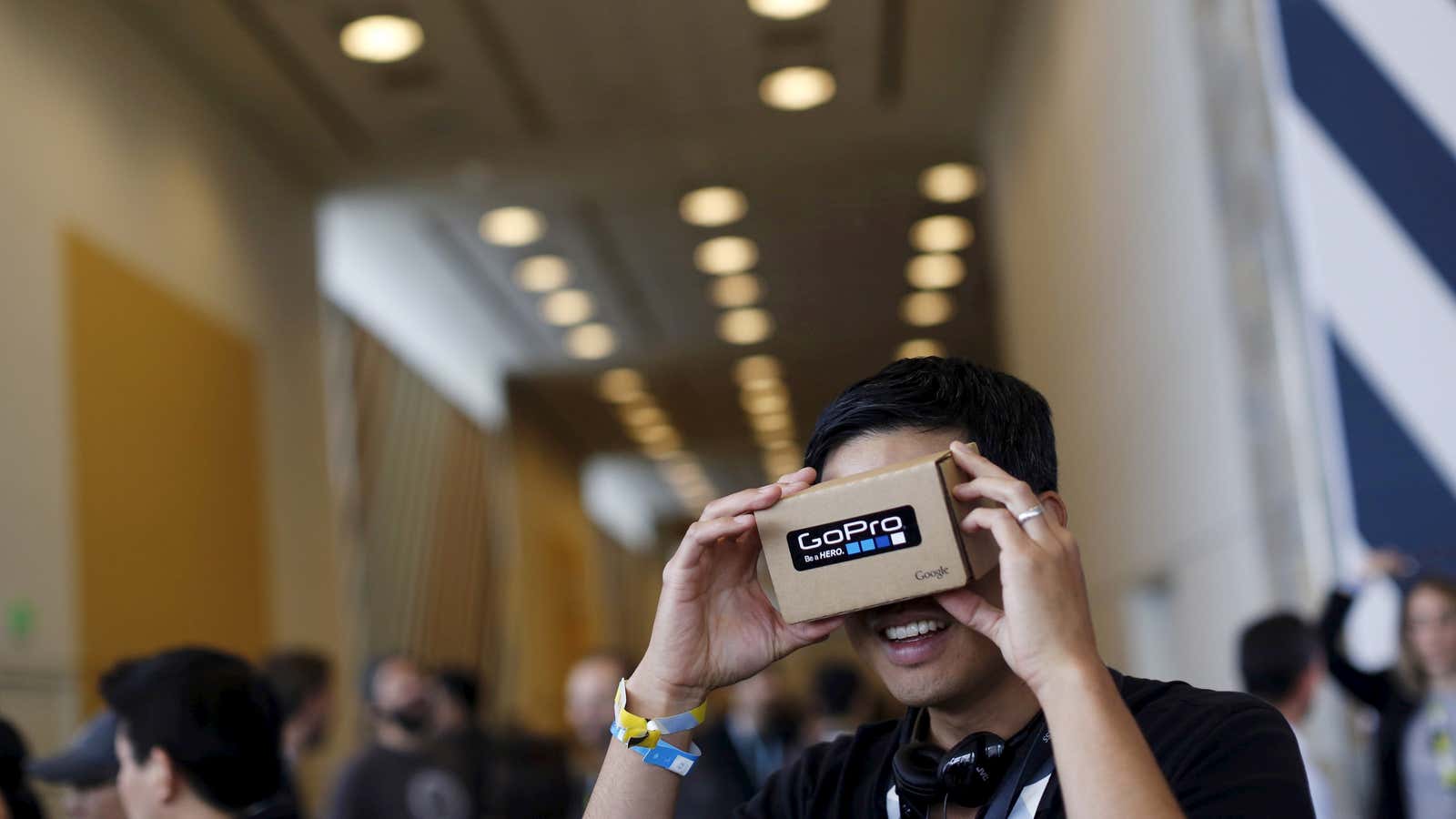There appears to be nothing virtual about Google’s interest in VR. According to reports from the Wall Street Journal and the Financial Times (paywalls) this past week, Google is looking to expand its virtual reality offering with a new headset.
Currently, the company’s only foray into VR has been the Cardboard—a literal piece of cardboard that sells for about $20, which users can strap any cellphone into to get a somewhat more immersive video-watching experience than just holding a phone in their hands. According to the FT, Google is looking to build a more robust version of that headset, made of plastic and with additional motion-tracking sensors, akin to what Samsung released late last year with the Gear VR.
Google Cardboard is handheld—it’s only meant for short VR experiences, like the length of a YouTube music video—whereas the new headset would have head straps that would accommodate longer sessions. However, it would still rely on the processing power of the phone, as the Gear VR does. Samsung’s headset costs $99, but requires one of the company’s $600 flagship smartphones to use, and the Financial Times believes Google might do something similar with its own Nexus line of phones. The first two iterations of Cardboard were unveiled at Google’s annual I/O developer conference, and it could well show off the new headset, running the latest version of its Android mobile operating system, at this year’s conference on May 18.
But a new report by the Wall Street Journal suggests Google is looking into developing a standalone VR headset that wouldn’t require a smartphone to use, as well as new smartphone-based system. Facebook’s Oculus, Sony, and HTC are all in various stages of prepping and releasing virtual reality systems. The $600 Oculus Rift went on presale in January, but it will require a powerful thousand-dollar desktop computer to actually use it. According to the Journal, Google’s system would not require another device to use, but might therefore be a little lower-quality than the stunningly immersive realities that the Oculus Rift and HTC Vive promise.
Google recently set up a virtual reality division with project management lead Clay Bavor in charge, suggesting the company has grander designs for VR than pieces of recyclable cardboard. The company wasn’t immediately available to comment on its plans.
